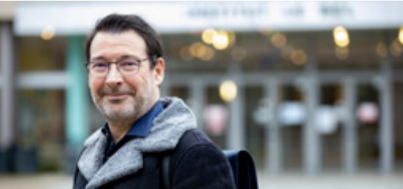Interview with Jean-Marc Planeix. Strategic Coordinator of the EPICUR alliance

In response to a European call for projects, Epicur brings together eight European universities. The purpose is to educate a new generation of creative European citizens. Jean-Marc Planeix, Vice-President for Academic Partnerships and Governance and Strategic Coordinator of the EPICUR alliance, gives us an overview. Savoir(s) Magazine of the University of Strasbourg. June 2021 issue.
What is Epicur?
Epicur (European Partnership for an Innovative Campus Unifying Regions) is the response of eight European universities to a call for projects from the European Commission to encourage universities across the Old Continent to work together to develop the mobility of students, teachers, staff members and researchers. Despite Erasmus, only 5-10% of students move from one European university to another. This is not enough.
Who are the eight universities?
They are the universities of Poznan, Thessaloniki, Vienna, Amsterdam, Freiburg, Karlsruhe, Mulhouse and Strasbourg. The four Rhineland universities of Eucor – The European Campus are already used to working together and are joining forces with four other more distant universities. In this way, we intend to test different educational methods that can be applied over a wide geographical area.
In concrete terms, what does Epicur bring to the students of these universities?
We have chosen several themes: multilingualism, sustainable development, high precision medicine and European identity. We offer teachers the possibility of creating courses together: two teachers from the Strasbourg Business School of Management and the Adam Mickiewicz University of Poznań have developed a joint course on European identity. A online platform offering some thirty teaching units has also been developed : 500 students have registered for these courses via the platform.
Epicur highlights the Bachelor of liberal arts and sciences. Is this what European societies need today?
Epicur is the result of the awareness that the humanities, the arts and the sciences are too separate. Our university curricula have become too specialised at the detriment of a multi-disciplinary vision. It is also very important that European teachers and students learn to work together: when we collaborate on a common project, we realise that we have a very strong European cultural unity. The European potential is under-exploited.
What is the first assessment of Epicur and what are the perspectives?
Physical mobility has of course been blocked by Covid-19. On the other hand, and this is another consequence of the health crisis, we have made good progress on distance learning and evaluation, particularly via the platform (EPICUR Inter-University Campus) . In the future, we could consider extending the Bachelor of liberal arts and sciences into a master’s degree. We will also have to provide a new programme on sustainable development. But if we want mobility to really work, the European Union, the States and the university must support students financially.
Interview by Jean de Miscault. Savoir(s) magazine. June 2021. Translated by Guillaume Arlen








